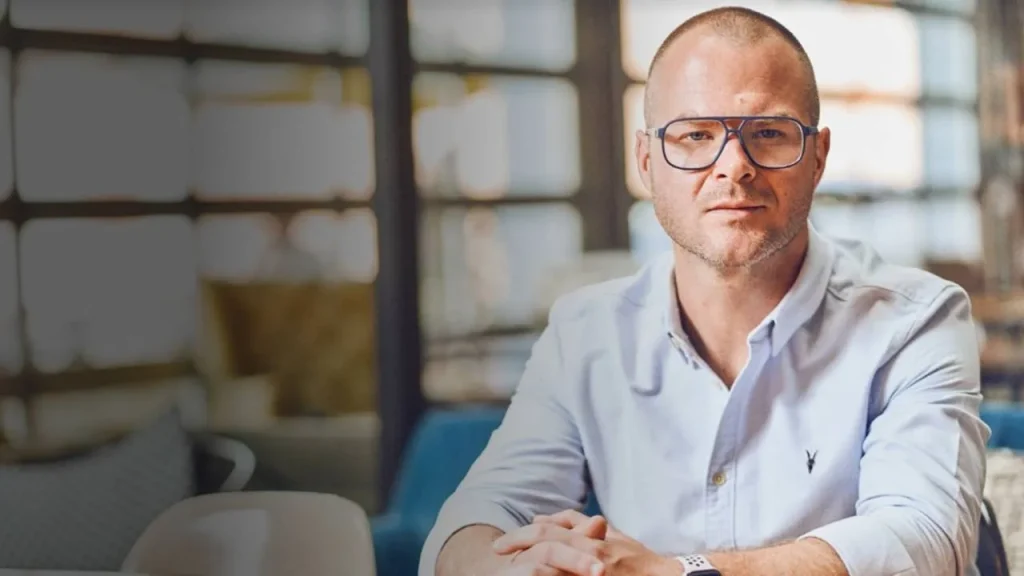I grew up in a family, a city and a time when ‘good’ looked like a ‘job for life’. I remember when I started at BAE SYSTEMS, which was 1 of the 2 major employers in the city at the time, people said to me “you’re lucky, that’s a job for life”.
It wasn’t! They announced redundancies every year and now the site is an empty shell. Over 3,000 people left that business over a short period. For the next 20 years I saw the same thing happen in every industry and sector I came across. I saw great colleagues made redundant from roles they put their heart and soul into.
What ‘luck’ really looked like, was being able to anticipate where the next redundancies where likely to hit and not been there at the time.
In reality, there is no job for life, there is no job security.
And we’re even seeing that in Big Tech.
The world changes, the company is forced to change which ultimately hits the employees, and then hits the employees families.
Many of the people I have met often describe the solution as being their own boss, running their own thing. After all, when Meta makes its redundancies Zuck still has his billions, when Amazon makes its redundancies Bezos still has his billions and when Elon walks in with a sink and fires everyone, he still has his billions (ok, maybe a few less billions but you get the point).
Now here is the thing, being your own boss doesn’t mean creating a big company. Instead you can be a solopreneur.
Lets have a look at 4 people who did this…
The solopreneurs who grew beyond solopreneurship
Lets start with a couple of people who are not strictly solopreneurs, simple because they grew beyond that stage and needed to employ a few people.

First on the list is Gary Newman, creators of Gary’s Mod and Facepunch Studios. Gary initially created a mod for Half Life 2, which launched in 2006 and has sold 20 million copies, with an estimated sales value of $150m. Following the success of this, he went on to create Facepunch Studios which developed a game called Rust which by the end of 2019 had sold 9 million copies, making a further $142m.
In summary:
- a solo person, made a mod for an existing game, sold it, made millions, went on to develop another business and made more millions.

Next, Ali Abdaal, a Youtube creator and former medical doctor. While training to be a doctor he created a Youtube channel which gave advice to other wannabe medical students on how to apply for medical courses. Over his Youtube career he pivoted to productivity advice and more recently it seems to also include ‘getting started on Youtube’. In this video he talks about how his top 3 videos have made him £320k combined, individually making £160k, £100k and £60k.
But Youtube is not the only stream of income he has developed, and I highly recommend you watch this video to see how he does it.
In short, over the past 2 years, he has had a turnover of $4m+ with profits of over $2m (each year).
In summary
- a solo person made a Youtube channel giving advice to people applying for medical courses. He fell in love with the process and made more, pivoting to new content ideas.
- he scaled the channel to the point where he could leave his job as a doctor, employ a few people and branch out from there.
The true solopreneurs
So back to the point at hand, the solopreneur.

Let’s start with Justin Welsh. I don’t know the guy’s back story too well, but it looks like he had a successful career. However, as he says, in 2019 he burnt out, so he and his wife quit their “high-paying jobs and decided to completely redesign our lives with more intention”.
More recently he’s developed his online profile and following, along with developing a course which seems to be really successful. Watch this video to find out more (and to see others).
Just looking at two streams of income, his course ‘The LinkedIn OS’ which is reported to generate $1.3m in sales. Another income stream is his newsletter, in which he has a maximum of 2 sponsored slots, each at $2k each (he has a 6-month waiting list for sponsorship). In the video I linked, he reports that he made $100k last year alone from that.
In summary
- Justin built a following, built a course on how to build a following, and now is free from the 9 to 5.

Ok, so we’ve talked about people who have actively talked about making big money. Now let’s talk about someone who doesn’t talk about making big money, but instead says he makes “a comfortable living mostly from drinking tea in my shed or riding my bike. I am a lucky man!”.
And that man is Alastair Humphreys.
And perhaps he’s being a little modest, one random guess from a random website is that he would have a net worth of $1.5m. A more modest guess, based on companies house data, would be an annual turnover of £80k to £100k.
Now let’s be honest with ourselves, earning £80k to £100k per year for doing something we enjoy is fantastic. For me personally, it would be a dream.
Before all of this, Alastair did something amazing, he cycled around the world. It took him 4 years, covering 60 countries, 5 continents and 46,000 miles. Since then he’s talked about micro-adventures, finding adventures all around you, and the 5 to 9 adventure window.
In terms of income, he does everything from making Youtube content, writing books, public speaking and many more. He’s even written a book about making money as an adventurer (click here).
For a more detailed breakdown, I would recommend reading here and here. And while Alastair is doing all this stuff focused on ‘adventure’ I would challenge you to think how you could do this about something you know about.
In summary:
- Alastair has built up a great living from doing things he enjoys and he’s found ways to monetise living adventurously.
Summary
So there you have it, 4 people who built a living from nothing.
I would also say, they are not extremely lucky people, they are not unique or significantly different to you in any significant way (apologies to those who I featured here, but from your content, I would assume you agree with that statement).
The only real key difference is, they did something about it, and they kept doing something about it even when they didn’t see quick results. As Alastair says he “gave over 300 talks before I earned any money from it”.

